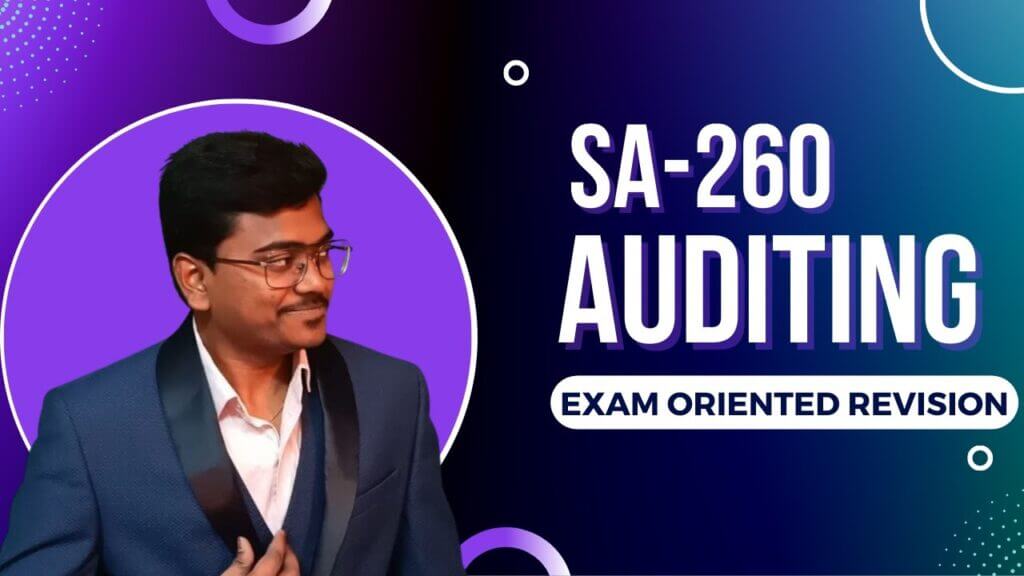Management (vs) Those Charged with Governance
1) Management:-The person(s) with executive responsibility for the conduct of the entity’s operations. (Eg:- Executive director, CEO, CFO etc)
2) Those charged with governance(TCWG):-The person(s) or organization(s) (e.g., a corporate trustee) with responsibility for overseeing the strategic direction of the entity and obligations related to the accountability of the entity. This includes overseeing the financial reporting process. (Eg:- Board of Directors, Audit committee etc)
Note:- In some entities both management & TCWG could be same (or) members of management could be members of TCWG
Matters to be communicated with TCWG
1) The Auditor’s Responsibilities in Relation to the Financial Statement Audit:-
a) The auditor is responsible for forming and expressing an opinion on the financial statements and
b) The audit of the financial statements does not relieve management or those charged with governance of their responsibilities.
2) Planned Scope and Timing of the Audit:- The auditor shall communicate with TCWG an overview of the planned scope and timing of the audit, which includes communicating about the significant risks identified by the auditor.
3) Significant Findings from the Audit:-The auditor shall communicate with TCWG The auditor’s views about significant qualitative aspects of the entity’s accounting practices, including accounting policies, accounting estimates and financial statement disclosures.
4) Circumstances that affect the form and content of the auditor’s report, if any; and
5) Any other significant matters arising during the audit that, in the auditor’s professional judgment, are relevant to the oversight of the financial reporting process.
Significant difficulties, encountered during the audit such as
1) Significant delays by management, the unavailability of entity personnel, or an unwillingness by management to provide information necessary for the auditor
2) An unreasonably brief time within which to complete the audit.
3) Extensive unexpected effort required to obtain sufficient appropriate audit evidence.
4) The unavailability of expected information.
5) Restrictions imposed on the auditor by management.
6) Management’s unwillingness to make or extend its assessment of the entity’s ability to continue as a going concern when requested.
Communication related to Auditor’s Independence
In the case of listed entities, the auditor shall communicate with TCWG:
1) A statement that the engagement team and others in the firm as appropriate, the firm and, when applicable, network firms have complied with relevant ethical requirements regarding independence; and
2) All relationships and other matters between the firm, network firms, and the entity that, in the auditor’s professional judgment, may reasonably be thought to bear on independence.
3) The related safeguards that have been applied to eliminate identified threats to independence or reduce them to an acceptable level.
Forms of Communication
The auditor shall communicate following in writing with TCWG if in the auditor’s professional judgment, oral communication would not be adequate.
1) regarding significant findings from the audit
2) auditor independence
Timing of Communications
1) The auditor shall communicate with those charged with governance on a timely basis.
2) Start Communication from the time of engagement Acceptance
3) Subsequent periodicity of communication shall be decided by the auditor based on size & Complexity of the entity
Adequacy of the Communication Process
The auditor shall evaluate whether the two-way communication between the auditor and those charged with governance has been adequate for the purpose of the audit. If it has not, the auditor shall evaluate the effect, if any, on the auditor’s assessment of the risks of material misstatement and ability to obtain sufficient appropriate audit evidence, and shall take appropriate action.

